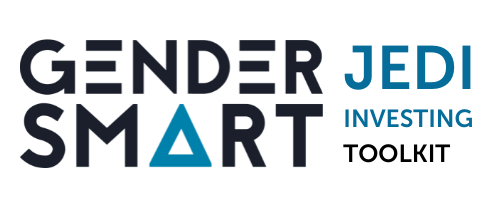
Glossary
A living list of key terms and underlying concepts to understand as you move forward in your JEDI investing journey.
-
Accountability: The ways in which individuals and communities hold themselves to their goals and acknowledge the values and groups to which they are responsible.
Ally: Someone who works in solidarity with oppressed groups in the struggle for justice, understanding that it is in their own interest to end all forms of oppression.
Anti-Racism: Actively opposing racism by identifying, challenging, and changing the values, structures and behaviors that perpetuate racism. Anti-racism is an active process to oppose and undo racism and understand how racial ideology is manufactured and how it impacts the lived experiences of people everyday
-
Bias: A subjective opinion, preference, prejudice, or inclination, often formed without reasonable justification, that influences the ability of an individual or group to evaluate a situation objectively or accurately.
Binary Thinking/Binarism: Conceiving or conceptualizing only in terms of oppositions ("either-or").
BIPOC: An acronym for Black, Indigenous, and People of Color, used to acknowledge that forms of racial oppression differ for different groups, and to acknowledge the unique oppression of Black and Indigenous people in the United States.
Black Lives Matter (Movement): The ideology, originating in the United States, that seeks to affirm and assert the value of Black lives, seeking equal treatment and justice for Black people - not to the exclusion of such for people of other races, but in response to the systematic absence or denial of equal treatment and justice for Black people across institutions and policies.
-
Classism: The cultural, institutional and individual set of practices and beliefs that assign value to people according to their socio-economic status. Classism also refers to the systematic oppression of poor and working-class people by those who control resources.
Colonisation: The invasion, dispossession and subjugation of a people. This need not be military; it can take the form of agricultural, urban, or industrial encroachments. The result is the dispossession of vast amounts of lands from the original inhabitants. This is often legalised after the fact.
Cultural Appropriation: Theft of cultural elements of a marginalised culture for the dominant culture’s own use, commodification, or profit - including symbols, art, language, customs, etc. - often without understanding, acknowledgement, or respect for its value in the original culture.
-
Decolonisation: The meaningful and active resistance to the forces of colonialism that perpetuate the subjugation and/or exploitation of minds, bodies, and lands, and a shifting of power towards political, economic, educational, cultural, psychic independence and power that originate from a colonised nation's own indigenous culture.
Diaspora: The voluntary or forcible movement of peoples from their homelands into new regions
Disaggregated Data: Breaking down aggregate information into smaller subpopulations. (source)
Discrimination: Actions based on conscious or unconscious prejudice that favor one group over others in the provision of goods, services or opportunities. This can be based on race, gender, social class, sexual orientation, physical ability, religion, and/or other categories.
Diversity: The practice of including, involving and valuing all the ways in which people are different from one another as an important and valuable trait in institutions, communities, and other groups. This encompasses many characteristics, including: race, ethnicity, gender, age, national origin, religion, disability, sexual orientation, socioeconomic status, education, marital status, language, and physical appearance; as well as differences in opinions, perspectives, and values.
Dominant Group: Not necessarily the majority, but the group within a society with the power, privilege, and social status to control and define societal resources and social, political, and economic systems and norms.
-
Equality: A state in which everyone receives the same things in order to enjoy full, healthy lives. The idea of equality seeks to promote fairness, but it presumes that everyone comes from the same starting point when it comes to access to resources and barriers to success.
Equity: A state in which all people would receive the resources they uniquely need to have the same chance at success. Similar to equality, equity seeks to promote fairness, but it acknowledges that not everyone starts with the same resources or experiences the same barriers to success.
Ethnicity: Social characteristics that people may have in common, such as language, religion, regional background, culture, foods, etc.
-
Homophobia: The fear or hatred of homosexuality (and other non-heterosexual identities) and persons perceived to have these identities.
Implicit Bias: A mental process that stimulates negative attitudes about people who are not members of one's own group which leads to discrimination.
In Group Bias: The tendency for groups to "favour" themselves by rewarding group members economically, socially, psychologically and emotionally in order to uplift one group over another.
Inclusion: The act of bringing people or groups who are in some way excluded to the decision-making table, in an authentic and meaningful way. A commitment to inclusion means that excluded groups are actively brought into processes in a way that results in shared power.
Indigeneity: Indigenous populations are composed of the existing descendants of the peoples who inhabited the present territory of a country at the time when persons of a different culture or ethnic origin arrived there from other parts of the world, overcame them by conquest, settlement or other means, and reduced them to a non-dominant or colonial condition; who today live more in conformity with their particular social, economic and cultural customs and traditions than with the institutions of the country of which they now form part, under a state structure which incorporates mainly national, social and cultural characteristics of other segments of the population which are predominant.
Individual Racism: Individual racism includes face-to-face or covert actions that intentionally express prejudice, hate or bias based on race.
Institutional Racism: Institutional racism refers to the policies and practices within and across institutions that, intentionally or not, produce outcomes that chronically favor one racial group and/or put a racial group at a disadvantage. The institutional policies may never mention any racial group, but their effect is to create advantages for dominant groups and oppression and disadvantage for people from marginalised groups.
Intersectionality: Intersectionality is a feminist theory which starts from the premise that people live multiple, layered identities derived from social relations, history and the operation of structures of power. People are members of more than one community at the same time, and can simultaneously experience oppression and privilege. Intersectional analysis aims to reveal multiple identities, exposing the different types of discrimination and disadvantage that occur as a consequence of the combination of identities.
-
LGBTQ: Acronym for lesbian, gay, bisexual, transgender and queer or questioning, used to describe a person's sexual orientation or gender identity. An extended variant is LGBTQIA+, which includes I for intersex and A for asexual, with a + designation to acknowledge the existence of others whose identities reside outside of the indicated groups.
Marginalised: Excluded, ignored, or relegated to the outer edge of a group, society, or community.
Microaggression: Everyday insults, indignities, and demeaning messages sent to historically marginalised groups by well-intentioned members of the majority group who are unaware of the hidden messages being sent.
Oppression: Oppression is both the unjust or cruel exercise of authority or power, and the effects of domination so attained. Oppression results from both the use of institutional power and privilege where one person or group benefits at the expense of another; and from the systematic subjugation of one social group by a more powerful social group for the social, economic, and political benefit of the more powerful social group.
-
People of Colour: Often the preferred collective term for referring to non-White racial groups, primarily in English-speaking countries. Racial justice advocates have been using the term "people of colour" since the late 1970s as an inclusive and unifying frame across different racial groups that are not White, to address racial inequities. While “people of color” can be a politically useful term, and describes people with their own attributes (as opposed to what they are not, e.g., “non-White”), it is also important whenever possible to identify people through their own racial/ethnic group, as each has its own distinct experience and meaning and a more specific identifier may be more appropriate.
Post-Colonialism/Post-Colonial Theory: The tensions and contradictions inherent in the relationship between coloniser and colonised, oppressor and oppressed. In particular, how the colonised/oppressed internalise the ways and language of the coloniser/oppressor, in order to survive within extant social structures.
Power: The ability to influence others and impose one's beliefs. Power is not only an individual relationship but a cultural one, and power relationships are shifting constantly. Power can be used malignantly and intentionally, but need not be, and individuals within a culture may benefit from power of which they are unaware.
Prejudice: A preconceived judgment about a person or group of people, usually indicating negative bias.
Privilege: Unearned social power accorded by the formal and informal institutions of society to all members of a dominant group (e.g. white privilege, male privilege, etc.). Privilege is usually invisible to those who have it, but it nevertheless puts them at an advantage over those who do not have it.
-
Race: A social construct that divides people into distinct groups based on certain characteristics such as physical appearance (particularly skin color), ancestral heritage, cultural affiliation, cultural history, ethnic classification. Racial categories subsume ethnic groups.
Racial Equity: The condition that would be achieved if one's racial identity no longer predicted, in a statistical sense, how one fares.
Racial / Ethnic Identity: An individual's awareness and experience of being a member of a racial and ethnic group; the racial and ethnic categories that an individual chooses to describe him or herself based on such factors as biological heritage, physical appearance, cultural affiliation, early socialization, and personal experience.
Racial Justice: The systematic fair treatment of people of all races, resulting in equitable opportunities and outcomes for all. Also the proactive reinforcement of policies, practices, attitudes and actions that produce equitable power, access, opportunities, treatment, impacts and outcomes for all. It is not just the absence of discrimination and inequities, but also the presence of deliberate systems and supports to achieve and sustain racial equity through proactive and preventative measures.
Racism: A doctrine or teaching, without scientific support, that claims to find racial differences in things like character and intelligence; asserts the superiority of one race over another or others; and seeks to maintain that dominance through a complex system of beliefs, behaviors, use of language and policies.
Restorative Justice: A theory of justice that emphasizes repairing the harm caused by wrongful behavior. This can lead to transformation of people, relationships and communities.
-
Sexism: Prejudiced thoughts and discriminatory actions based on differences in sex/gender.
Social Justice: A process which seeks fair distribution of resources, opportunities, and responsibilities; challenges the roots of oppression and injustice; empowers all people to exercise self-determination and realize their full potential; and builds social solidarity and community capacity for collaborative action.
Stereotype: Blanket beliefs, unconscious associations, and expectations about members of certain groups that present an oversimplified opinion, prejudiced attitude or uncritical judgment.
Structural Racism: Term used to demonstrate when systems —not individuals— advance, perpetuate, and/or protect racism through institutions, policies, and laws.
Unconscious Bias: Describes the way in which deep subconscious attitudes shape an individual’s decisions —both positively and negatively— without their knowing it.

